Hello and welcome to Episode 10 of the What China Wants podcast.
There aren’t many in the West who understand China’s politics, and with good reason: it is a byzantine system set in a Marxist framework hidden behind a difficult language. But what the Chinese Communist Party does is increasingly impactful on us all, especially the fallout from their big political get-togethers.
These don’t come bigger than the National Congresses, and the 20th is due this autumn. There are so many questions to ask, like will Xi Jinping be renominated for the top job? Will the Party move even more aggressively against the private sector? Will the hawks win the balance of the Politburo?
Here to discuss it all is friend of the show Alex Neill, a long-standing Sinologist.

Our main points from today’s episode:
The 20th Party Congress this autumn is the key get together of the Communist Party. Its main job is to elect the Central Committee, which then elects the Standing Committee - the most powerful decision-making body.
It is held behind closed doors and we won’t know the results until the new appointees walk out from behind a curtain.
Xi Jinping is likely to retain power and to ensure that the new committees are stuffed with his loyalists.
The make-up of the new committees will determine the direction of China and its relationship with the outside world for the next five years.
You can also listen to the podcast on Apple, Amazon, or Spotify.
As always please do share, comment, and subscribe. We’ll be back next week with a cultural podcast all about the Chinese language.
Many thanks for listening.
***
Here is the transcript of the recording:
Stewart Paterson: "All work of the Party's news and public opinion media must reflect the will of the Party, mirror the views of the Party, preserve the authority of the Party, preserve the unity of the Party, and achieve love of the Party, protection of the Party and acting for the Party, and must maintain a high level of uniformity with the Party in ideology, politics and action.”
Thus says Xi Jinping, who is, of course, the President of China and Chairman of the Party. Welcome to What China Wants. I'm joined by Sam Olsen, and by Alex Neill who rejoins us, and the subject of today's broadcast in the light of the lack of clear reporting out of China as to what the internal machinations of the Communist Party are, the purpose of today's podcast is to try and shine some light on that. And to that end, welcome, Alex.
Alex Neill: Morning, Stewart, very good to be back with the podcast.
SP: Well, thank you for joining us and for taking the time. Clearly, there is a distinct lack of information coming out of China. But we are in the run up now to the Party Congress in November, which assumes more significance than normal. Perhaps Alex, we could just start by you informing the audience as to what exactly happens in November and why it is so important.
AN: Well, thanks very much, Stewart. The 20th Party Congress is an important gathering for the Central Committee of the Chinese Communist Party, not only because it's the 20th Party Congress (so there'll be a level of celebration in that regard). But it's also a really momentous occasion for the overhaul and a big leadership change within the Party. And thirdly, it's Xi Jinping's opportunity, potentially, to secure a third term as leader of the Communist Party and as the supreme leader of China. So those three elements really make for quite a momentous event coming up, and there's a huge amount of speculation about how the line-up might look for the new Politburo Standing Committee.
But if things follow the pattern, there will be a Seventh Party Plenum, which is a sort of annual stocktake of the party's achievements over the course of the year, and also an opportunity to plan a roadmap for the quasi-legislature in China, the National People's Congress, and also the National People's Consultative Congress, the quasi-upper house, if you want to think of it in that way, and they will create a roadmap for the next five years. It'll be incumbent upon Xi if he is to secure a third term to really instil all of his policy planning, his propaganda and his vision for the governance of China into that Party Congress, and then for that to be mapped out and imprinted as a blueprint in the two meetings, as they're called, in March next year. So that's the National People's Congress, and the People's Political Consultative Congress as well.
Sam Olsen: So Alex, just to clarify for those who might not be so sure about the internal workings, there's quite a lot of terminology there. We have Congress' obviously, in the West. In America, the Republican National Congress, and the Democrat one and we have the Conservative Party convention and Labour Party convention in the UK. They're not like that; this is actually a bringing together of government to make decisions, as well as having sort of a flag-waving celebratory side, right?
AN: Well, there is a flag waving celebratory side, but first and foremost, this is an internal party affair. So there is very little public scrutiny, or at least reporting of it while it's going on. After the Congress, there will be a report of the Congress which maps out what was discussed. But no, I wouldn't say this is a government type meeting. This is definitely an internal party affair. It's a closed door affair, and there's a lot of secrecy surrounding its progress and the discourse that goes on so we'll only know actually, what's happened at the 20th Party Congress when the Congress report is released, and also when we see the members of the Communist Party Politburo Standing Committee.
I know there's a lot of jargon here but the Standing Committee of the Politburo is the core leadership of the party. At the moment, it's seven standing committee members, it could be more, it could be fewer than that. But the most remarkable thing about this Congress is that there's this sort of mystifying but tantalising moment, when the new leaders of the Standing Committee reveal themselves from behind a red curtain and walk onto a stage and wave at the Central Committee, the gathered delegates of the Congress. It's quite a remarkable event really to watch.
SP: That's interesting, Alex, because one of the things that the apologists for authoritarianism often throw at democracies is "well, you know, we have at least a degree of certainty, and consistency in policymaking and personnel. And that stability allows long term planning, etc." What you're really saying is that at this juncture we have no idea who those seven people will be, or even if they will be seven.
AN: There's plenty of speculation about what the Standing Committee composition might appear to be. But you're right, we will not know literally until these leaders step out from behind the curtain. And that's what's quite remarkable by comparison to Western democratic processes. But this process has been going on for some time, and it involves a whole range of steps, in particular, provincial party committees and municipal party committees, the party committees in the big urban centres of China, they propose their delegates for the Congress. I think it was back last month, so that's all been done.
But what happens behind closed doors is this sort of horse-trading, because this is where feudal loyalties if you like, within the party, and within the factions within the party, start to dissolve, and then they are reconstituted at the Party Congress. So there is this huge, intensive competition that's been going on in China for the last few months. You could call it a sort of Communist Party metamorphosis where it builds a chrysalis around it to shield itself from any outside interference. Then there's a sort of DNA reshuffling going on internally. And then perhaps it's wrong analogy, but the Communist Party butterfly emerges from behind the curtain in November.
And the process of transparency is entirely within the party. But there is a process of submitting delegates endorsing those delegates, and then the line-up the attendance of delegates at the Party Congress, but the public at large is not involved in this, no.
SP: And so what would Xi's preferred makeup of the Politburo be? What would be an indication in terms of its composition that maybe there was significant pushback to him? How will we judge his authority by the composition when it's revealed?
AN: So when those figures step out onto the stage, we'll know if he has secured his legacy, if not secured backing for a third term by members of the new Standing Committee, stepping out who are clear devotees or loyalists to him. There are people like CCP Central Committee, Head of the General Office, Ding Xuexiang, there's also Li Qiang, or Chongqing party secretary Chen Min'er, who's been quite acclaimed for his achievements there.
There is speculation that some seats could be allocated for senior leaders of the Communist Youth League, and apparently, according to Party pundits who've been looking at CCP behaviours over the last two years or so, there's competition and Xi Jinping took a dislike to the Communist Youth League. And there's probably horse-trading going on between Lika Chang, the premier and Xi Jinping himself to put people in that line-up, but it's incredibly opaque. It’s really difficult to read the tea leaves, so to speak.
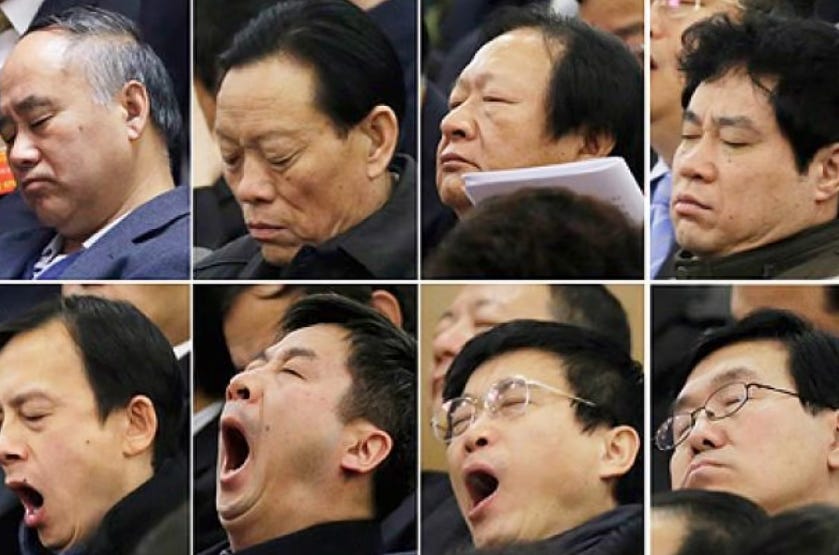
SO: So Alex, a blunt question, but why should we in the West care about who's going to be in the Politburo about what's going to happen in the Congress? What difference does it make to China and therefore what difference does it make to us to know about this?
AN: Well that's a key question, Sam. So the Standing Committee members they all have particular remits - the economy, security, propaganda, the military as well. And each of those members are going to be, at least for the next five years, if not 10 years, the architects of China's future path. And it's highly likely that that future path has been engineered by Xi Jinping for his vision for the great rejuvenation of China, in a so called 'New Era'.
These men are incredibly powerful characters. And I say men, but I don't think, in my memory, there's ever been a female member of the Standing Committee. And there's usually only one or two members of the broader Politburo. So I think it'll be interesting to see if there'll be any powerful women who emerge on the stage. I think it's unlikely if you look at the potential candidates and the speculation that's going on. But yes, these individuals are incredibly powerful people who are at the helm of this great power, this burgeoning superpower, which is the People's Republic of China.
SP: So Alex, that is sort of the composition and the politics behind it. In terms of policy, clearly, one of the things that seems to be becoming increasingly evident is that Xi Jinping's direction of travel is taking quite a heavy burden on economic activity. He was behind 'common prosperity' and the dual circulation strategy. And although official data is mixed in China, what we do see in the property market is a high level of bond defaults, land sales have collapsed.
And the property market has been a huge driver, both of economic growth but also fiscal sustainability for the local governments, because land sales make up about 40% of revenue, and then property-related taxes add on top of that to local government revenue. It's not difficult to construct an argument that under Xi Jinping's guidance, the economy has taken a really substantial turn for the worse and arguably is actually a threat to Party authority now.
Do you think that we're going to see a change in policy tone after this Congress? Is it the case that he just wants to maintain the status quo up to November, and then come November, he can perform U-turns on policy with pretty much impunity, because you know, there's then this long period before his authority can be challenged again?
AN: My own view is that Xi Jinping really is a Party purist. I think he feels quite impassioned about the corruption, the endemic corruption that was evident at the outset of his term, when Hu Jintao handed over the reins to Xi Jinping. That was in the wake of a massive period of economic largesse which has produced some of the problems, some of the pressures that you've just described. So property bubbles, massive inflated prices in China's urban centres, which pushes out all but the richest and top of the elite. In China, we saw provincial debt really growing as well and fiscal problems in the provinces which might not necessarily be reported up to the centre in in a clear way, which actually seems to be a sort of systemic problem for China even prior to the rise to power of the Communist Party.
But more recently, we've seen Xi Jinping insisting on the Party-fication, if you like, of the private sector. So in China, corporations and foreign investors find themselves having to appoint Party representatives within their own organisations. We've also seen huge magnates like Jack Ma disappearing off the radar screen for his challenges to the dual circulation and the marketization agenda.
SP: So Alex, then if what you're saying is correct, and he really is ideologically driven, then those people who are sitting there saying, "well come November, things will get better because basically whatever happens Xi Jinping can just relax a bit and adopt a more pragmatic approach." In your view, that's not going to happen that this is ideologically driven. And people need to start reading some Xi Jinping Thought, to understand what's going on in his mind, because he's telling us that he is a Marxist Leninist, and that's the way the economy is going to be structured.

AN: That's right. He has also built a cult of personality as well as purging the party, so the price of abandoning that puritanical approach to leadership could mean factional rivalry challenges, some potential challenges to his own legacy and directly to himself. And that's something that I don't think he's prepared to tolerate at all. And we've seen this tightening up happening over the last couple of years, if not longer.
The economic tsar, if you want to call him that, Liu He, has been under enormous pressure, particularly since the COVID outbreak. But I think Xi's vision is this sort of dream of rejuvenation, and he will not sacrifice anything, particularly any corrosion of his power base. So I think this is set to continue. It may be, come the National People's Congress, with a roadmap for the next five years, there'll be a plan for China's economic development coming out of the National People's Congress. And there'll be hints of what that will be in the 20th Party Congress report as well. So everybody needs to be watching quite carefully in November, what's said, after the Congress and machinations as there's preparations for the National People's Congress, the two meetings, as I described earlier, in March next year.
But I think if you look at the COVID Zero approach, which is ongoing, and the deleterious effect that's had on China's economy, and an absolutely unswerving position by Xi Jinping on that, I think that's a good indication of how he intends to push ahead in the next five year cycle.
At this point, though, I should say that it's almost seems to be a received wisdom that Xi Jinping is going to go on for a third term. I'd like to stick my neck out and say, well, he might stick to party regimen, and actually step down, he might not necessarily emerge from behind that red curtain in November, he may have had enough. But if he does do that, he needs to be satisfied that the people he's put into the Standing Committee are going to secure his legacy and protect his own interests.
SO: And also protect him as an individual because surely, he's made quite a few enemies - the anti-corruption campaign, reducing the size of the army - there's a lot of people that will be out to get him if he leaves office.
AN: Yes, absolutely. All of the loyalties that have been associated with key figures who've been victims of the Tigers and Flies campaign, taking down not just your common or garden party members to rural level, who are rampantly corrupt, perhaps, but taking down those key figures who wielded huge amounts of power in China, at the outset of his term in 2013. People like Zhou Yongkang and others, which created huge reverberations within the Party leadership, and it destroyed people's fortunes, whether that was potentially built on corruption or otherwise. The new line-up, I think it'll be full of Xi loyalists, I imagine.
SO: Okay, so we've talked about what this might mean for the economy. But in terms of China's global position, and its relationship with the rest of the world, what are the different ways that you think that the Congress could take China with its relationship with the outside world?
AN: Well, I think the first key one to mention is the Global Security Initiative, which is clearly a roadmap for presenting an alternative approach to global governance with Chinese characteristics. But inbuilt into that is something called the China Plan, the Zhongguo Fan'an and this idea of the supremacy of the China way. Also implied in that is the moribund nature of the global order, which has been constructed by the West in the wake of World War II, and subsequently, in the wake of the Cold War.
I think Xi and his acolytes have been promoting this idea of the decline of the West and the rise of the East. So what we'll see is a push, particularly in the Indo-Pacific, but elsewhere in the developing world, we all know of the global south agenda, I think we'll see China being much more aggressive pushing its own blueprint for governance and development there, but also securing the world with Chinese characteristics. So we all know that the People's Liberation Army has been really building up its capabilities with some powerful new platforms. I think what we'll see in the next 10 years is, as part of the Global Security Initiative, the People's Liberation Army really moving out globally, to secure or to consolidate China's security interests around the globe. Recently, Xi Jinping has published another book, a fourth volume on governance…
SP: Which you read, right?
AN: I think I struggled to get through even the first couple of chapters of his of his first volume, but he's published, I think, nine books over the last year or so. And his fourth volume on governance is there. I think the diehards, and those who really want to dive into this, but they may find hints of his global outlook.
There's also the Global Development Initiative as well, and there's the Green Belt and Road Initiative. I think those sorts of things will be invigorated at the National People's Congress in March, whether or not see is there or not at the helm? It's an enormous challenge for China. But I think this idea of Rise of the East decline of the West, that's something that's been adopted in Party propaganda, and what has been promulgated domestically. Whether or not the broader Chinese population believes that as a different question, but that's what the Communist Party will be pushing.
SP: Alex, just finally to round off, can I just ask one very blunt question? If Xi Jinping does not come out from behind that curtain, and it's because there has been some sort of power struggle, and effectively a behind the scenes coup, who is likely to be the next Chairman of the Politburo Standing Committee? And if he doesn't come out from behind the curtain, but it's because he's actually secured his legacy, who would you expect to see leading the Standing Committee then?
AN’ Well, if Xi doesn't come out from behind the curtain, then, I think, a character Chen Min'er, who I mentioned earlier, he's been a favourite for taking over the reins of the Communist Party, and he's certainly been nurtured as one of those top favourites. The other one is Li Qiang, who is Party Secretary of Shanghai. And of course, that being the economic powerhouse of China, I think Li Qiang could be potentially another General Secretary of the Communist Party.
But going back to these challenges to Xi Jinping, there are rumours that Premier Li Keqiang has been pushing for a Hu Chunhua, who's a Vice Premier currently looking after China's agriculture apparently, that's a possibility. But it's fiendishly difficult, and probably something that's better placed within the bookies offices than the likes of myself. But those are three names, who I think could be there, whether or not Xi Jinping is coming out from behind the curtain or not.
SO: Well, one thing we can say, based on what you've described, is that the next five years after this congress are going to be incredibly important for both the Chinese economy and China's place in the world. So we wait with bated breath who's going to come out from behind that curtain in exemplary political theatre style. And we can then perhaps have another conversation at that point and see what that means for the rest of the world.
SP: Absolutely, Sam, and thanks very much indeed, Alex, for joining us for a second time on What China Wants.
AN: It's a great pleasure to speak to your audience again, and thank you very much for some very adroit questions. It's a fascinating topic, and as the summer draws to an end, it'll be really interesting to look at the outcomes of the Party Congress and then later on perhaps in the year we can talk again when things have crystallised a bit.
SO: Great, goodbye.






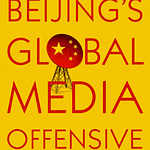
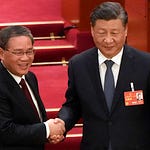
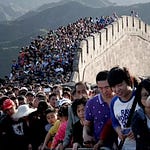
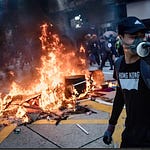


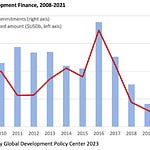
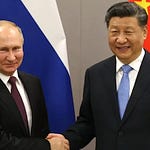
Episode 10: What Should We Expect from China's Coming 20th Party Congress?